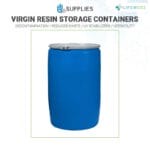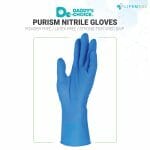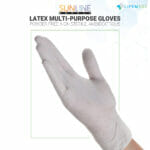What are Face Mask Filters?
Face mask filters are specialized inserts or layers placed inside or integrated into face masks to enhance the mask’s ability to filter airborne particles, such as dust, allergens, pollutants, and pathogens. These filters are designed to improve the filtration efficiency of cloth masks or other reusable face coverings, ensuring better protection against harmful substances. In the Personal Protective Equipment (PPE) industry, face mask filters are an essential component for ensuring safety in various environments, including healthcare, construction, and public spaces during outbreaks of infectious diseases.
How Do Face Mask Filters Work?
Face mask filters work by trapping airborne particles as air passes through them during inhalation and exhalation. These filters are often made from materials such as non-woven polypropylene, activated carbon, or melt-blown fabric. The fine fibers in these materials capture particles through different mechanisms, including mechanical filtration and electrostatic attraction, effectively blocking contaminants from reaching the wearer’s respiratory system.
Filters can either be built directly into the mask, as seen in disposable surgical or N95 masks, or used as removable inserts in reusable cloth masks. They typically offer higher filtration efficiency than cloth masks alone, particularly when made with advanced materials like activated carbon or electrostatically charged fibers.
Types of Face Mask Filters
- Activated Carbon Filters: These filters are designed to absorb harmful gases, chemicals, and odors, in addition to filtering out particulates. They are commonly used in industrial settings where exposure to fumes and chemicals is a risk.
- HEPA Filters: High-Efficiency Particulate Air (HEPA) filters offer superior filtration of small particles, capturing particles as small as 0.3 microns, making them highly effective for use in environments with significant airborne hazards.
- Melt-Blown Filters: Commonly found in medical masks like N95 respirators, melt-blown filters are made from fine fibers that can trap tiny particles, including viruses and bacteria.
- PM2.5 Filters: These filters are designed to block particulate matter (PM) with diameters of 2.5 microns or smaller, including dust, pollution, and pathogens, offering a high level of protection in outdoor environments.
Applications of Face Mask Filters in the PPE Industry
Face mask filters are widely used in healthcare, construction, and industrial environments to provide an additional layer of protection for workers exposed to harmful airborne particles. During pandemics, face mask filters became particularly important for the general public as well, as they significantly enhance the protective capabilities of cloth face coverings by filtering out airborne pathogens such as the coronavirus.
In industrial settings, filters with activated carbon or HEPA filters are essential for workers who are regularly exposed to pollutants, chemicals, or fine dust particles. For healthcare professionals, face mask filters integrated into N95 or similar respirators ensure protection against infectious diseases.
Conclusion
Face mask filters are a crucial component of respiratory protection in the PPE industry, offering enhanced filtration against a wide range of airborne hazards. By improving the filtration capabilities of both disposable and reusable masks, these filters play a vital role in safeguarding individuals from harmful particles, whether in healthcare, industrial, or public environments. Face mask filters have become increasingly essential in protecting workers and the public, especially during global health crises and in settings where exposure to contaminants is high.
« Back to Glossary Index

















